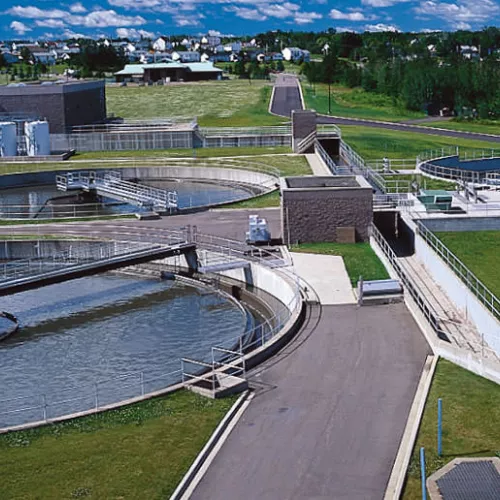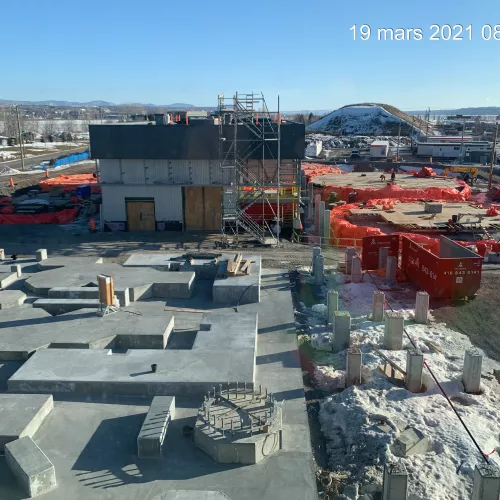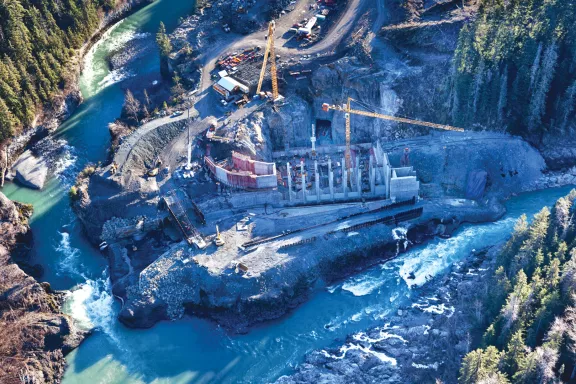
Foundations for Biofuel Facility
- Client
- Varennes Carbon Recycling
- Sector
- Industrial
- Delivery mode
- Cost Plus
- Location
- Varennes, QC, CA
- Year built
- 2023
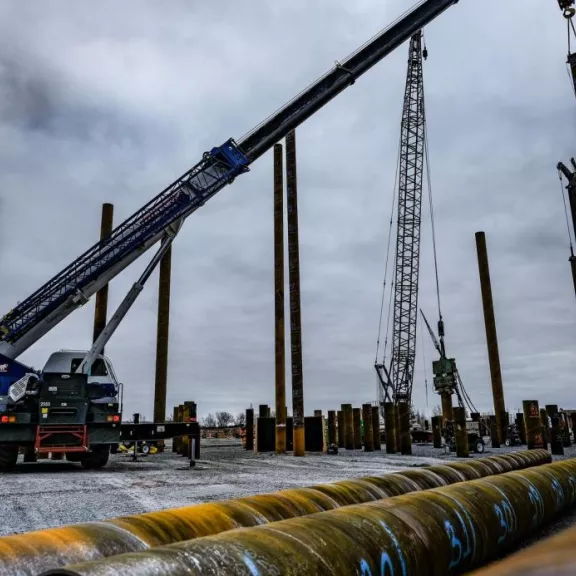
Pomerleau was selected as a foundations subcontractor by Black & McDonald, the general contractor for the Varennes Carbon Recycling biofuel plant in Varennes, using Enerkem technology.
As a subcontractor for the facility’s foundations, Pomerleau was responsible for:
Project planning
Mass excavation
Driving 1,800 piles to bedrock
Pile splicing
Pile trimming
Top plate welding
Pomerleau’s expertise in deep foundations was put to use in this project—and was executed in an own-force model. In addition, the project team took advantage of procurement know-how by choosing a local pile supplier to optimize delivery time and offer flexibility.
Specialist knowledge, manpower management expertise and experience with specialized equipment (cranes, drill rigs, pickers, driving machines) were also advantages for the team in this demanding project.
In terms of innovation, Pomerleau executed scans to plan the mass excavation work and provide detailed as-built records used in BIM models. Innovative tools for surveying were used with support from the surveying department. In addition, one innovative solution involved the use of Versaflo® air supply helmets for welding operations. These helmets ensured a safe working environment for the welders at all times.
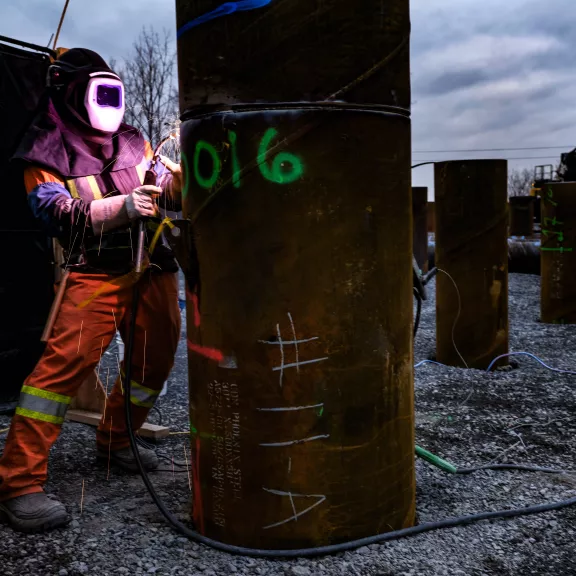
Environmental Considerations
A thorough environmental plan was created for this project because of its proximity to the St. Lawrence River and surrounding wetlands. Approaches and solutions were developed in case of spills, alongside waste management and noise management plans.
Organic oil was used on all equipment. The site was visited and assessed by a Pomerleau environment representative on a weekly basis.
Our Challenges
Pile Procurement and Use of Surpluses
Because of the number of piles required, the team sourced them from a local supplier to optimize delivery time. “We wanted to ensure we had enough buffer on site while having the flexibility to make last-minute changes, thereby offering our client the best value for money,” explained Project Manager Mathieu Catonné.
Ergonomic Health of Welders
The long periods of welding required for the pile splicing presented an ergonomic safety risk to the welders. The team found a solution: by over-excavating the area around the piles, the welders were able to have proper posture and not compromise their physical health during the nine-hour welding periods. "We completed the project with outstanding health and safety results, since there was no lost-time accident on site," said Mathieu.
Manpower with Specific Experience
The team needed a significant number of welders, as well as specialized resources such as drilling and pile driving operators for this project—and finding workers with specific experience was not always easy. “We took advantage of the context to provide training to our employees and prepare them for future jobsites,” said Mathieu. “We trained the workers who didn’t have the background and became an even stronger team.”
Winter Work and Logistics
Winter work was challenging as piles needed to be driven in frozen ground.
We had to get 30-40 pile sections in the ground per day—and then had to work around those already in place, which is a challenge when snow and ice accumulate. Thanks to meticulous preparation, the work was completed on schedule despite the additional challenges faced on site.
The Site in Figures
17,500,000
1,800
20
